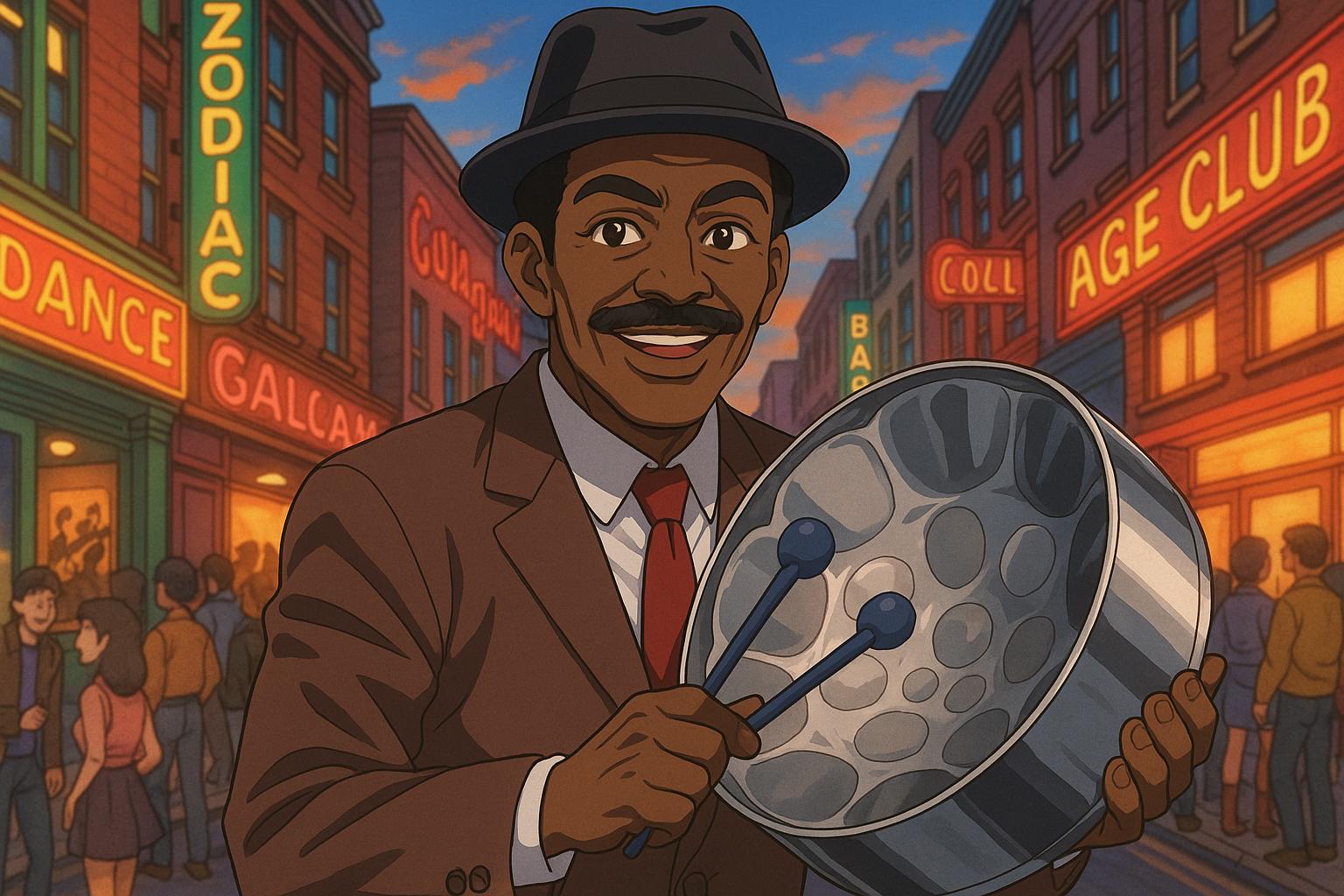In the vibrant but often overlooked tapestry of Liverpool’s early music scene, one figure stands out for his profound yet underappreciated influence on The Beatles: Lord Woodbine, born Harold Phillips in Trinidad. His story, marked by talent, resilience, and a poignant relationship with the Fab Four, highlights not only his contributions but also the broader cultural dynamics at play during the 1960s.
Woodbine was an integral part of the burgeoning Liverpool music scene, fostering the raw talent of young musicians. He initially came to England aboard the SS Windrush, the ship that carried the first significant wave of Caribbean immigrants to the UK. As he settled in Liverpool, he became a catalyst for creativity, forming the All-Steel Caribbean Band and opening doors for aspiring artists like Paul McCartney and John Lennon. In the halcyon days of their youth, The Beatles reportedly looked up to Woodbine, who was seen as an accidental mentor, guiding them through their formative musical explorations. “Woodbine's Boys,” as he referred to them, were drawn to his charisma and the cultural richness he embodied.
Despite his pivotal role, Woodbine's contributions have largely been relegated to the shadows of history. This discrepancy is highlighted by the lamentations of many who knew him, including music promoter Allan Williams, who credited Woodbine as essential to The Beatles' ascendance. Without his guidance and connections, it is suggested that the path to fame for the young Liverpool band would have been markedly different. Indeed, Williams stated that without Woodbine, there would likely have been no Beatles, underscoring how vital this lesser-known figure was in shaping the band's trajectory.
The cultural backdrop of Liverpool during this time was one of complex interactions between black and white musicians. Figures like George Dixon and Odie Taylor shared the scene with Lennon and McCartney, illustrating the multicultural fabric that defined the city’s music. This intermingling of traditions was not without its tensions, as highlighted by the mixed sentiments surrounding The Beatles’ adoption of R&B influences. While McCartney later reflected on the friendships formed in that era, many in the black community felt a sense of ambivalence regarding the extent to which their contributions were acknowledged.
Woodbine's experiences mirror the broader narrative of black musicians in the UK, who often laboured in obscurity despite their significant influences. His own attempts to claim his place in the Beatles’ story were fraught with challenges, culminating in an interview lamenting his omission from their legacy. He faced the harsh reality of having his image airbrushed out of a significant photo, an act emblematic of the systematic neglect faced by black artists at that time. “It really hurt me,” Woodbine noted, revealing the deep scars left by exclusion from the very story he helped to shape.
After a life filled with vivid experiences—from performing in nightclubs to being a mentor for burgeoning talents—Woodbine met a tragic end in a house fire in Toxteth. His death not only marked the loss of a remarkable figure in music but also echoed the persistent neglect of black contributions to the cultural landscape of Liverpool. Even in his passing, he was met with a quiet acknowledgement rather than the public memorial that many believed he deserved, leaving a void that reflected both personal and collective forgetfulness.
The arguments for greater recognition of figures like Woodbine continue to resonate today. Dr Helen Davies argues that the narratives surrounding The Beatles often overlook the contributions of black artists, emphasising the need to broaden our understanding of musical history. As sociologist Max Farrar asserts, more recognition of the rich cultural context from which The Beatles emerged would allow for a more nuanced appreciation of their legacy.
Ultimately, Lord Woodbine’s life serves as a poignant reminder of the intertwined fates of artists in their pursuit of recognition and belonging. His story invites reflection on how history is recorded and acknowledged and calls for a more inclusive narrative that recognises the diverse influences that shaped not only The Beatles but the entire landscape of popular music in Britain.
📌 Reference Map:
- Paragraph 1 – [1], [2]
- Paragraph 2 – [1], [6]
- Paragraph 3 – [4], [7]
- Paragraph 4 – [5], [3]
- Paragraph 5 – [2], [4]
- Paragraph 6 – [6], [7]
Source: Noah Wire Services
